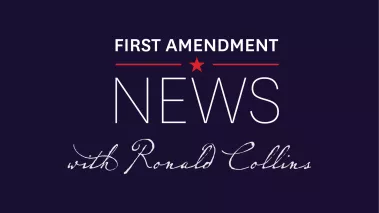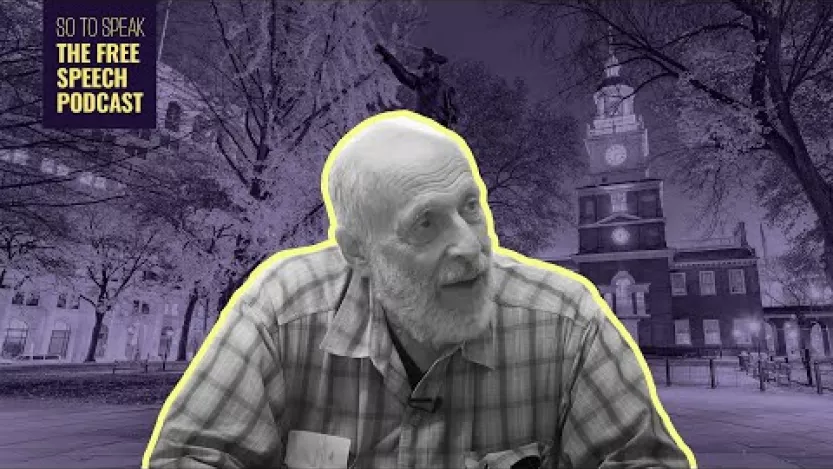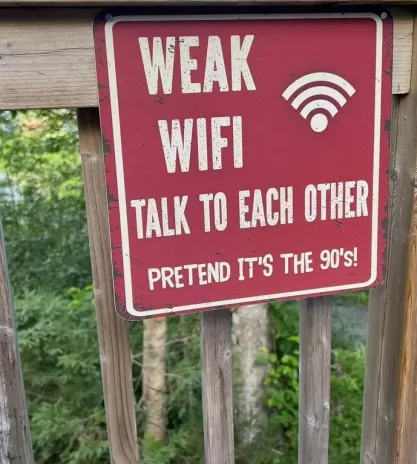Table of Contents
Harvey Silverglate for the defense . . . of John Eastman — First Amendment News 392

First Amendment News is a weekly blog and newsletter about free expression issues by Ronald K. L. Collins. It is editorially independent from FIRE.
If the First Amendment did not sometimes defend those deemed offensive, what would the point be? I mean, what chance would rogues, rebels, and repugnant types stand if their kind were easily run out of town . . . or disbarred, or civilly sued, or criminally prosecuted? The First Amendment is, after all, there to offer some measure of protection to scoundrels, rascals, scamps, miscreants, troublemakers, comedians, and even deceivers — up to a point, at least. And such folks need good lawyers to ensure that whatever free speech rights they might enjoy are not abridged.
Enter Harvey Silverglate, the noted civil-libertarian and co-founder of FIRE.
True to his libertarian stripes, Mr. Silverglate is defending John Eastman, a self-righteous man who is loathed in most liberal quarters and well-regarded in certain conservative circles. As his fate would have it, Eastman’s affiliation with former President Trump and his service to him have put both Eastman’s liberty and bar license in peril. As Jennifer Rubin recently put it in a Washington Post article:
John Eastman, the lawyer allegedly at the center of the unprecedented and outrageous scheme to overthrow the 2020 election, faces criminal prosecution in Georgia and has been identified as an unindicted co-conspirator in special counsel Jack Smith’s federal case. And Eastman must defend a bar complaint in California that threatens to revoke his law license.
It all spells trouble, though Silverglate urges that we all “take a deep breath.”
From an interview with NBC Boston, here’s Silverglate on the press coverage of Donald Trump:
The press has a thing about everything Trump and everything is slanted and I am appalled. You know, I was a journalist before I was a lawyer, and I still write columns for newspapers, including major national papers and local papers. And I am appalled at the quality of reporting in everything related to Trump. Ten years from now, the news media is going to do a gigantic mea culpa. And mind you, I am no Trump supporter. I wouldn't vote for Trump if I was being tortured. I am no Trump supporter.
Regarding the Justice Department’s prosecution, Silverglate said the following in the same interview:
I am appalled that the Department of Justice — under a Democratic administration — appalled that they have done this to the leading Republican candidate for the presidency prior to the Republican National Convention. There is a statute of limitations that is quite lengthy and they could have waited. Common decency, common sense and propriety would have had them wait until after the nomination because if Trump got the nomination, then they should wait until after the election. I consider that what the Department of Justice is doing here to be candidate suppression. That's not their job. So the timing is appallingly bad judgment and I believe done in bad faith to keep him from being the Republican nominee for president. They realize Biden is a very weak candidate. If Biden had any common sense, he would have just said he was not running for a second term. That would have opened up the field to some excellent Democratic — younger Democratic candidates. So on top of everything else, this is an attempt to kind of fix the election for Biden. It is appalling in every single way.
Silverglate also had a warning for criminal defense lawyers. “Lawyers everywhere should be sleepless over this latest stunt to criminalize their advocacy,” he told the Washington Examiner in a statement. “This is a legal cluster bomb that leaves unexploded ordinances for lawyers to navigate in perpetuity.”
On political speech, Silverglate noted, “The indictment in Georgia vs. Donald Trump and 18 others sets out activity that is political, but not criminal.” He also said, “It goes hand-in-glove with the recent effort to criminalize lawful political speech and legal advice, in stark violation of constitutional rights to Freedom of Speech, Right to Petition the Government for Redress of Grievances, and the Right to Counsel.”
By Silverglate’s measure, the California Bar’s disciplinary actions are both legally unwarranted and constitutionally unjustifiable:
As a criminal defense and civil liberties attorney and writer for over a half-century, I have seen many miscarriages of justice caused by stampedes led by politicians, prosecutors and, alas, journalists. These investigations are made more dangerous by the ease with which one can be investigated and even indicted, as I’ve tried to explain in my 2009 book entitled Three Felonies a Day: How the Feds Target the Innocent. The California Bar’s decision to seek disciplinary action against an attorney in a case as hotly disputed and nuanced as this one is, both legally and factually, is equally troubling, and should be to all attorneys who recognize the importance of our adversarial system of justice.
Related
- Stephen Rohde, “Devil's Advocate: Why is a prominent ethics professor defending John Eastman on First Amendment grounds?” First Amendment News 385.1 (June 29)
- Stephen Rohde, “A Bitter Pill: Does the First Amendment Protect John Eastman’s Defense of the ‘Big Lie?” First Amendment News 385 (June 27)
‘So to Speak’ podcast
- “Harvey Silverglate, the beatnik criminal defense attorney,” “So to Speak” podcast (Aug. 24)
Harvey Silverglate is a criminal defense and civil liberties attorney. He is also the co-founder of FIRE. On today's show, Harvey defends the work of criminal defense attorneys, explaining why even guilty people must have the right to a robust legal defense. He also shares stories from his life, from growing up in Brooklyn to defending Vietnam War protesters to co-founding FIRE.

First Amendment challenges to Inflation Reduction Act’s Drug Price Negotiations
- Stacy Cline Amin, Will Baker, Wendy Chow, and Joseph Palmore, “Legal Battles Continue Over Inflation Reduction Act’s Drug Price Negotiation Measures,” JDSupra (Jul. 25)
In recent months, six different lawsuits have been filed challenging the Inflation Reduction Act (IRA)’s Drug Price Negotiation Program (the “Program”), with a flurry of activity likely in the coming months before the Program’s first deadlines. . .
[T]he drug price negotiation requirements were enacted as part of the IRA, which authorizes the Centers for Medicare and Medicaid Services (CMS) to engage in price negotiations with drug manufacturers for certain high-cost, single-source Medicare Part B or Part D drugs. CMS will select the 10 and 15 highest-ranked Part D drugs for rolling out negotiated prices in 2026 and 2027, respectively. To ensure compliance with the negotiation process, the IRA applies an excise tax on each sale of the drug during a period of non-compliance, including drugs sold to purchasers other than Medicare and Medicaid.
[ . . . ]
Currently, six complaints have been filed against the U.S. Department of Health and Human Services (HHS), which oversees CMS. The primary plaintiff and location of each suit are listed below:
- Merck & Co., Inc. (Merck): Filed June 6, 2023, in Washington, D.C.
Merck v. Becerra et al., D.D.C., No. 1:23-cv-01615- U.S. Chamber of Commerce (Chamber): Filed June 9, 2023, in Columbus, OH
Dayton Area Chamber of Com. et al. v. Becerra et al., S.D. Ohio, No. 3:23-cv-00156- Bristol Myers Squibb (Bristol): Filed June 16, 2023, in Trenton, NJ
Bristol Myers Squibb Co. v. Becerra et al., D.N.J., No. 3:23-cv-03335- Pharma. Research and Manufacturers of America (PhRMA): Filed June 21, 2023, in Austin, TX
Nat’l Infusion Ctr. Ass’n v. Becerra et al., W.D. Tex., No: 23-cv-00707- Astellas Pharma (Astellas): Filed July 14, 2023, in Chicago, IL
Astellas Pharma US, Inc., v. Dep’t of Health and Hum. Services et al., N.D. Ill., No: 23-cv-04578- Johnson & Johnson (J&J): Filed July 18, 2023, in Trenton, NJ
Janssen Pharmaceuticals, Inc. v. Becerra et al., D.N.J., No: 23-cv-03818The legal arguments detailing why the Program is unconstitutional are varied, but overlap across complaints. The most common argument is that the Program violates the First Amendment by forcing companies to state that they “agree voluntarily” to the government’s offer. Across all the complaints, seven legal arguments in total challenge the constitutionality of the Program . . .
First Amendment — Compelled Speech: The Program forces companies to publicly state that they voluntarily “agree” to a price, when it is actually a forced negotiation.
Plaintiffs: Merck, Chamber, Bristol, Astellas, and J&J.
Volokh on what counts as an ‘artistic work’
- Eugene Volokh, “But is it art?” The Volokh Conspiracy (Aug. 29)
What counts as an “artistic work” for purposes of special protection under the Texas anti-SLAPP statute?
In VSMSQ Structural Engineers, LLC v. Structural Consultants Assocs., Inc., decided last month by the Texas Court of Appeals (Houston), in an opinion by Justice Richard Hightower, joined by Justices Peter Kelly and Julie Countiss, SCA alleges that ex-SCA employees formed VSMsq, and used SCA's proprietary information to compete with SCA. Both companies are structural engineering firms, and SCA argued, among other things, that VSMsq engaged in tortious misappropriation by “posting of the images of buildings engineered by SCA on VSMsq’s website for the purpose of promoting Appellants” engineering services.
Appellants sought to get the case thrown out under the Texas Citizens Participation Act—Texas's “anti-SLAPP” statute:
The TCPA “protects speech on matters of public concern by authorizing courts to conduct an early and expedited review of the legal merit of claims that seek to stifle speech through the imposition of civil liability and damages.” . . . The TCPA provides a mechanism for dismissal of a "legal action" that is “based on or is in response to” . . . [among other things, a] party's exercise of its right of free speech
[ . . . ]
The TCPA excludes commercial speech. But this commercial speech exclusion itself has an exclusion, which provides that the TCPA does apply in (emphasis added) "a legal action against a person arising from any act of that person, whether public or private, related to the gathering, receiving, posting, or processing of information for communication to the public, whether or not the information is actually communicated to the public, for the creation, dissemination, exhibition, or advertisement or other similar promotion of a dramatic, literary, musical, political, journalistic, or otherwise artistic work, including audio-visual work regardless of the means of distribution, a motion picture, a television or radio program, or an article published in a newspaper, website, magazine, or other platform, no matter the method or extent of distribution."
And the court concluded that Appellants' use of the building images was commercial speech, and that the “artistic work” exception didn't apply.
Just released: Book on free speech on college campuses
- Amy Lai, “In Defense of Free Speech in Universities: A Study of Three Jurisdictions,” University of Michigan Press (2023)
In this book, Amy Lai examines the current free speech crisis in Western universities. She studies the origin, history, and importance of freedom of speech in the university setting, and addresses the relevance and pitfalls of political correctness and microaggressions on campuses, where laws on harassment, discrimination, and hate speech are already in place, along with other concepts that have gained currency in the free speech debate, including deplatforming, trigger warning, and safe space. Looking at numerous free speech disputes in the United Kingdom, the United States, and Canada, the book argues for the equal application of the free speech principle to all expressions to facilitate respectful debates. All in all, it affirms that the right to free expression is a natural right essential to the pursuit of truth, democratic governance, and self-development, and this right is nowhere more important than in the university.
Lukianoff: ‘Five Basic, Common-Sense Reforms’ college presidents can do to protect free speech

Could this happen here? French ban on Islamic dress in schools
- Clea Caulcutt, “French education minister announces ban on Islamic dress in schools,” Politico (Aug. 27)
Students will no longer be allowed to wear the long, flowing dress known as the abaya in classrooms. French Education Minister Gabriel Attal announced on Sunday that France will ban the Islamic garment known as the abaya in schools. “The school of the Republic was built around strong values, secularism is one of them. . . . When you enter a classroom, you shouldn’t be able to identify the religion of pupils,” Attal said in an interview with French TV channel TF1. “I announce that [pupils] will no longer be able to wear abaya at school,” he said.
The abaya is a long, flowing dress commonly worn by Muslim women as it complies with Islamic beliefs on modest dress — but it’s also worn by other communities in North Africa and the Middle East. In 2004, France banned religious symbols in schools, including large crosses, Jewish kippahs and Islamic headscarves. But the abaya occupies a gray zone and hasn’t specifically been banned.
Scholarly article on ‘overprotection’ of free speech
- Gary J. Simson, “The Roberts Court’s Overprotection of Free Speech and the Perfect Storm with Social Media,” Tennessee Law Review (2023)

In this Article I maintain that in recent years a broad, but unspoken, consensus has existed on the Supreme Court for deciding free speech cases with an almost insuperable presumption of unconstitutionality and that the result has been a system of freedom of expression that indefensibly and dangerously favors speech. If the Justices were simply putting a proverbial thumb on the scales in favor of free speech, that would not be particularly noteworthy. I make the much more controversial and novel claim here, however, that, across their ideological spectrum, the Justices routinely decide free speech cases in a way that greatly overvalues the harm to speakers from regulating speech or greatly undervalues the harm to society from not regulating it, or both. A fundamental change in the Court’s thinking about free speech issues is essential, and it is not the kind of change in thinking that can come about with one or two retirements on the Court.
To demonstrate the extreme nature of the Roberts Court’s free speech approach, I look closely in Parts II-IV at three cases in which the Justices were in broad agreement that a free speech claim should prevail — Snyder v. Phelps in 2011, United States v. Alvarez in 2012, and Mahanoy Area School District (MASD) v. B.L. in 2021. Snyder, Alvarez, and MASD are not the first cases anyone would name if asked to list the Roberts Court’s most important free speech decisions, but each offers a much better view of the Court’s approach at work than a high-profile case like Citizens United in which the Court divided along familiar ideological lines. The real story here is the striking breadth of agreement across the Court’s usual ideological divide and the exceptionally protective approach to free speech on which the Justices are so broadly agreed. In essence, all the Justices predicate their thinking in free speech cases on a baseline of protection that is perilously and unjustifiably high.After discussing Snyder, Alvarez, and MASD, I turn to speech on social media to illustrate the urgency of the Court’s revising its free speech approach. In Part V, I underline the gravity of the dangers posed by speech on social media by focusing on two kinds of uses to which social media has all too often, and increasingly, been put: expressing and cultivating hatred and prejudice toward racial and other minorities; and deliberately misleading and confusing the public about matters of important public policy. I argue in Part VI that such dangers very likely must go unregulated unless and until the Court adopts a much more balanced free speech approach. Social media is a propagandist’s dream come true. Speakers have always wanted to get others to embrace and act upon their ideas. By enabling speakers to flood the marketplace, and bombard people repeatedly, with their ideas, social media gives speakers enormous power to make that happen. Properly understood, however, the First Amendment should not stop the government from standing in their way when vital state interests are at stake.
Aside: Exercise your First Amendment right — talk to someone in person!

C-SPAN Interview: Corn-Revere on the ‘Mind of the Censor’
First Amendment lawyer Robert Corn-Revere, author of “The Mind of the Censor and the Eye of the Beholder,” talked about free speech in America and efforts to curtail it by the U.S. government going back to the 19th century. This interview was conducted at FreedomFest, an annual libertarian conference held in 2023 in Memphis.
More in the news
- “In Statehouses Across U.S., Varied Rules Restrict Public Voices,” First Amendment Watch (Aug. 28)
- Keith Whittington, “How Does Intramural Speech Fit Within the First Amendment?” The Volokh Conspiracy (Aug. 28)
- “Journalists Call for an End to the Prosecution of Michael Lacey,” FrontPage Confidential (Aug. 28)
- “Facing Dozens of Criminal Charges, Trump’s Right to Lie Will Be Core to His Legal Defense,” First Amendment Watch (Aug. 25)
- Kalvis Golde, “Once-suspended Twitter user argues California violated his First Amendment rights,” SCOTUS blog (Aug. 25)
- Kathy McCormack, “Artist loses bid to remove panels covering anti-slavery murals at Vt. school,” The Free Speech Center (Aug. 25)
- Carrie Robison and Aaron Terr, “California library violates First Amendment, boots speakers for referring to transgender women as ‘biological men’,” FIRE (Aug. 24)
- “Maine hospital threatens defamation lawsuit over 15-year-old’s Change.org petition,” FIRE (Aug. 23)
- Harvey Silverglate, “A college campus is the last place that should promote a culture of intolerance,” Boston Globe (Aug. 22)
2022-2023 SCOTUS term: Free expression and related cases
Cases decided
- 303 Creative LLC v. Elenis (6-3 per Gorsuch for the majority and Sotomayor for the dissent: The First Amendment prohibits Colorado from forcing a website designer to create expressive designs speaking messages with which the designer disagrees.)
- Counterman v. Colorado (held: First Amendment violated — 4 votes per Kagan with Sotomayor concurring in part joined by Gorsuch in part. Thomas filed a dissent and Barrett also filed a dissent, in which Thomas joined). (“In this context, a recklessness standard — i.e., a showing that a person ‘consciously disregard[ed] a substantial [and unjustifiable] risk that [his] conduct will cause harm to another’ . . . — is the appropriate mens rea. Requiring purpose or knowledge would make it harder for States to counter true threats — with diminished returns for protected expression. The State prosecuted Counterman in accordance with an objective standard and did not have to show any awareness on Counterman’s part of his statements’ threatening character. That is a violation of the First Amendment.”)
- Jack Daniel’s Properties, Inc. v. VIP Products LLC (9-0: held — When a defendant in a trademark suit uses the mark as a designation of source for its own goods or services — i.e., as a trademark — the threshold Rogers test for trademark infringement claims challenging so-called expressive works, see Rogers v. Grimaldi, does not apply, and the Lanham Act’s exclusion from liability for “[a]ny non-commercial use of a mark” does not shield parody, criticism, or commentary from a claim of trademark dilution.) (This is from footnote 1 of the majority opinion: “To be clear, when we refer to ‘the Rogers threshold test,’ we mean any threshold First Amendment filter.” Justice Kagan wrote the majority. Justice Sotomayor filed a concurring opinion, in which Justice Alito joined. Justice Gorsuch filed a concurring opinion, in which Justices Thomas and Barrett joined.)
- United States v. Hansen (7-2: Title 8 U.S.C. § 1324(a)(1)(A)(iv) — which criminalizes “encouraging or inducing” illegal immigration — forbids only the purposeful solicitation and facilitation of specific acts known to violate federal law and is not unconstitutionally overbroad.)
Review granted
- Vidal v. Elster
- O’Connor-Ratcliff v. Garnier
- 303 Creative LLC v. Elenis (argued Dec. 5)
- Jack Daniel’s Properties, Inc. v. VIP Products LLC (argued March 22)
- United States v. Hansen (argued, March 27) (Volokh commentary here)
- Counterman v. Colorado (argued, April 19)
Cert. granted and case remanded
- U.S. v. Hernandez-Calvillo (cert. granted, judgment vacated, and case remanded to the U.S. Court of Appeals for the 10th Circuit for further consideration in light of United States v. Hansen.)
- Klein v. Oregon Bureau of Labor and Industries (cert. granted, judgment vacated, and case remanded to the Court of Appeals of Oregon for further consideration in light of 303 Creative LLC v. Elenis.)
Pending petitions
- O’Handley v. Weber
- Center for Medical Progress v. National Abortion Federation
- Mazo v. Way
- Tingley v. Ferguson
- Frese v. Formella
- National Rifle Association of America v. Vullo
- Moody v. NetChoice, LLC
- NetChoice, LLC v. Moody
- Florida v. NetChoice
State action
- O’Connor-Ratcliff v. Garnier (cert. granted)
- Lindke v. Freed (cert. granted)
Qualified immunity
- Novak v. City of Parma (cert. denied)
Immunity under Foreign Sovereign Immunities Act
- NSO Group Technologies Limited v. WhatsApp, Inc. (cert. denied)
Liability Anti-Terrorism Act
- Twitter v. Taamneh (held, 9-0 per Thomas, J.: SCOTUSblog: “Plaintiffs’ allegations that the social-media-company defendants aided and abetted ISIS in its terrorist attack on a nightclub in Istanbul, Turkey fail to state a claim under 18 U.S.C. § 2333(d)(2).”)
Section 230 immunity
- Gonzalez v. Google (held, 9-0, per curiam, SCOTUSblog: “The 9th Circuit’s judgment — which held that plaintiffs’ complaint was barred by Section 230 of the Communications Decency Act — is vacated, and the case is remanded for reconsideration in light of the court’s decision in Twitter, Inc. v. Taamneh.”)
Review denied
- Mobilize the Message v. Bonta
- North Carolina Sons of Confederate Veterans v. North Carolina Dept. of Transportation
- Price v. Garland
- Keister v. Bell
- Morgan v. Arizona
Previous FAN
FAN 391: “‘Your Next Stop’: The Twilight Zone of A.I. and the First Amendment”
This article is part of First Amendment News, an editorially independent publication edited by Ronald K. L. Collins and hosted by FIRE as part of our mission to educate the public about First Amendment issues. The opinions expressed are those of the article’s author(s) and may not reflect the opinions of FIRE or of Mr. Collins.
Recent Articles
Get the latest free speech news and analysis from FIRE.

VICTORY: Court vindicates professor investigated for parodying university’s ‘land acknowledgment’ on syllabus

Can the government ban controversial public holiday displays?

DOJ plan to target ‘domestic terrorists’ risks chilling speech


